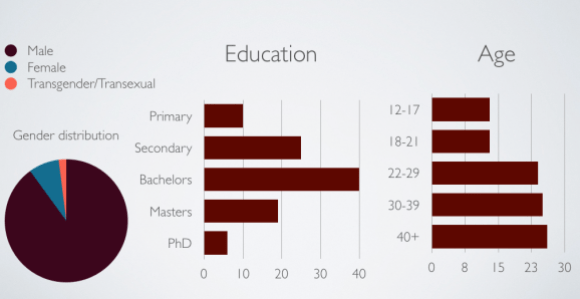We have blogged recently about the results from our semi-annual editor survey. Although the survey was conducted in 22 languages, it didn’t include Japanese, due to the March earthquake and ensuing Tsunami in Japan. It is with great pleasure that we would like to share toplines from a survey of editors conducted recently on the Japanese Wikipedia. We fielded it for about a week in the end of July, and got 208 complete responses. Like the semi-annual editor survey, the Japanese editor survey was available only to registered users of the Japanese Wikipedia and every editor saw the invitation to participate in the survey only once. The latter was done to control for bias towards more active editors.
The topline data covers all the questions from the survey: demographics, interactions with community members, technology ecology, and editing behaviors. We are hoping that the Japanese community (as well as others) will check the data, conduct some analysis and provide feedback to us.
Please also check out the graphs for some key demographics of Japanese editors. The results from the editor survey in the Japanese Wikipedia show that the Japanese editing community is similar to others demographically: predominantly male, highly educated and slightly older than what we imagined our community to be before we conducted the survey.

Mani Pande, Head of Global Development Research
(This is the ninth in series of blog posts where we previously shared insights from the April 2011 Editors Survey.)

Can you help us translate this article?
In order for this article to reach as many people as possible we would like your help. Can you translate this article to get the message out?
Start translation